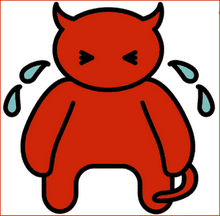 Dir. Juan Carlos Fresnadillo
Dir. Juan Carlos Fresnadillo28 Weeks Later
[Horror]
The plot: 28 weeks after the initial outbreak of the Rage virus, London is quarantined and the US army is brought in to keep an eye on proceedings. Before long, though, the virus finds its way into the safe zone and all hell breaks loose again. The movie follows a group of plucky survivors as they attempt to escape the virus, London and the unspeakable brutality of assorted American military commanders.
A viewer’s enjoyment of 28 Weeks Later could largely depend on the extent of his or her anti-American sentiment; from the first minute to the last, the film is loaded with thinly-veiled allusions to friendly fire, collateral damage, military occupation, imperialism and, above all else, the supposed foolhardiness of our North American allies.
Whether or not this overtly political approach is warranted (or, indeed, wanted) is up for debate, however what is not in doubt is that, all in all, 28 Weeks Later is a pretty poor horror movie. While it retains the stunningly desolate, post-apocalyptic atmosphere of its superb predecessor, 28 Days Later, complete with wonderfully directed shots of deserted London streets, decaying landmarks (including an unkempt, overgrown Wembley stadium) and the impressively realised safe zone, elsewhere it doesn’t have a great deal going for it.
Firstly, the aforementioned survivors are a dull, uninspired bunch who, apart from a typically robust Robert Carlyle doing Robert Carlyle, do little to convince that their behaviour will deviate from the expected assortment of panicking, screaming, protesting and being mauled in a fantastically gruesome fashion. Don’t get me wrong - I love a fantastically gruesome mauling - but when the cast are so overtly identifiable in their respective roles as either ‘survivors’ or ‘food’, the violence becomes predictable and, thus, much harder to appreciate.
28 Weeks Later also isn’t that scary, mostly relying on stock ‘boo’ moments (camera, accompanied by very loud sound effect, turning to reveal close up of monster’s face) and confused, overly distorted camera work, rather than making effective use of the ingenious setup - previously put to such brilliant use in Danny Boyle’s 2002 original - and potentially provoking subtler chills.
Also, considering the quantities of claret spilled in the movie, it is surprising (and disappointing) how inoffensive 28 Weeks Later actually is; remember, the purpose of the genre is to offend on screen and, in doing so, hold a mirror to society and allow it to reflect upon its own misgivings. Would it be too much to suggest that the anti-American hyperbolae simply serve to disguise the fact that, on the whole, what we have here is nothing more than a low-key action movie? After all, there are lots of guns, gals and explosions, not to mention a glaring plot hole or three.
Where The Texas Chainsaw Massacre used haunting, understated depictions of brutality to comment on the Vietnam war, here 28 Weeks Later uses the Iraq war to comment on the Iraq war, allowing its political sensibilities to supersede making a good horror flick, thus undermining the substance of any overriding message. However, when the prevailing suggestion is absolute, unabashed xenophobia, perhaps that isn’t such a bad thing. 42



1 comment:
Ah, how disapppointing. The trailer looked ace, but without Alex Garland and Danny Boyle, I wasn't too sure. Still, your review seems to be the harshest I've seen, it's generally got raves. So I guess I should see it myself sometime.
Post a Comment